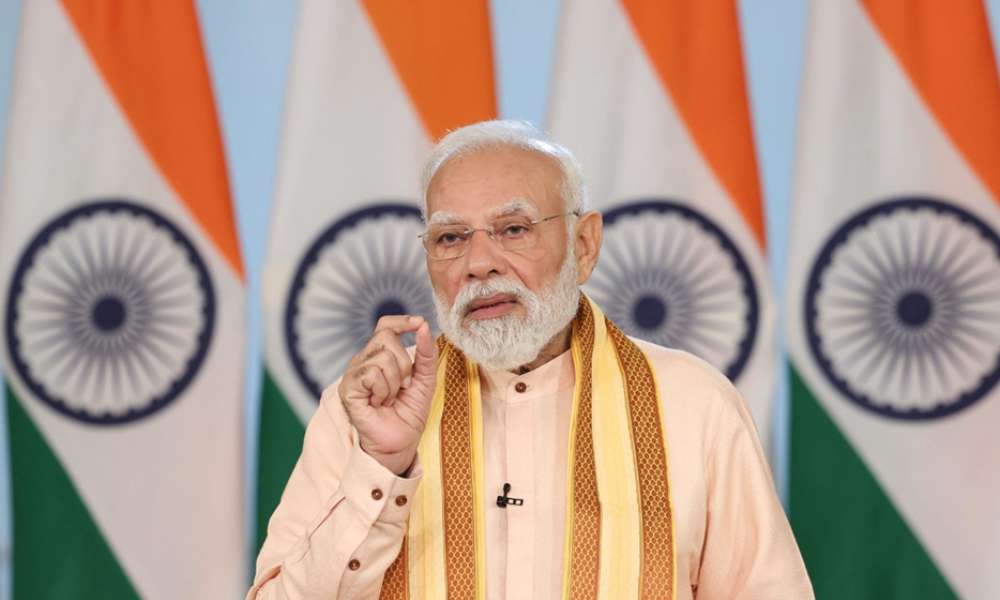GJEPC Unveils $100 Billion Export Vision at PM Narendra Modi’s Industry Leaders’ Meet

At a high-level interaction chaired by Hon’ble Prime Minister Shri Narendra Modi in New Delhi on November 3, 2025, Mr. Kirit Bhansali, Chairman of the Gem & Jewellery Export Promotion Council (GJEPC), joined a select group of industry leaders representing India’s top export-driven sectors. Speaking on behalf of the $30 billion gems and jewellery industry — which contributes around 7% to India’s total merchandise exports — Bhansali presented a bold roadmap to position India as the global hub for gems and jewellery by 2047.
Expressing gratitude to the Prime Minister for his transformative leadership and pro-trade vision, Bhansali acknowledged the success of landmark agreements such as the India–UAE CEPA, which helped boost plain gold jewellery exports by 47.4% annually between FY2023 and FY2025. He also lauded the progress of FTAs with the UK, Australia, and EFTA countries, adding that the upcoming US BTA and India–EU FTA would further cement India’s role in global trade.
Bhansali stated, “It was a privilege to represent the gems and jewellery industry at the Prime Minister’s select industry meet. Under his leadership, our sector has witnessed historic growth and enhanced ease of doing business. With continued government support, we are confident of achieving US$100 billion in exports and building a US$500 billion domestic market by 2047 — establishing India as the global epicentre for gems and jewellery.”
He also outlined several key policy recommendations to accelerate growth, investment, and competitiveness in the sector:
- Modernising the Customs Act, 1962
Bhansali proposed a major overhaul of the Customs Act, mirroring recent legal reforms and the success of faceless income tax assessments. He recommended implementing an advanced Risk Management System and AI-driven digital appraisals to enhance speed, transparency, and cost efficiency in customs operations. - Ensuring Affordable Export Credit
To level the playing field with global competitors, Bhansali urged the government to introduce concessional export credit, especially for MSMEs. He suggested extending interest subvention and ECGC premium subsidies to make Indian exporters more competitive globally. - Fast-Tracking SEZ Act Amendments
With 65% of India’s studded jewellery exports originating from SEZs, Bhansali advocated for the swift amendment of the SEZ Act to allow limited domestic sales with appropriate duty structures — a move that would maximise idle capacity and sustain employment during lean periods. - Launching a National Gem & Jewellery Park Policy
To attract global investors and strengthen domestic manufacturing, Bhansali proposed establishing a National Gem & Jewellery Park Policy, taking cues from successful models in the textile and leather sectors.
He further suggested drafting a comprehensive White Paper on the gems and jewellery industry, integrating GJEPC’s submissions to NITI Aayog and insights from the latest Exim Bank study.
Concluding his remarks, Bhansali underscored the need for India to evolve into a dynamic trading economy one that builds upon its natural strengths, harnesses trade pacts, and embraces policy innovation to realise its full export potential.

